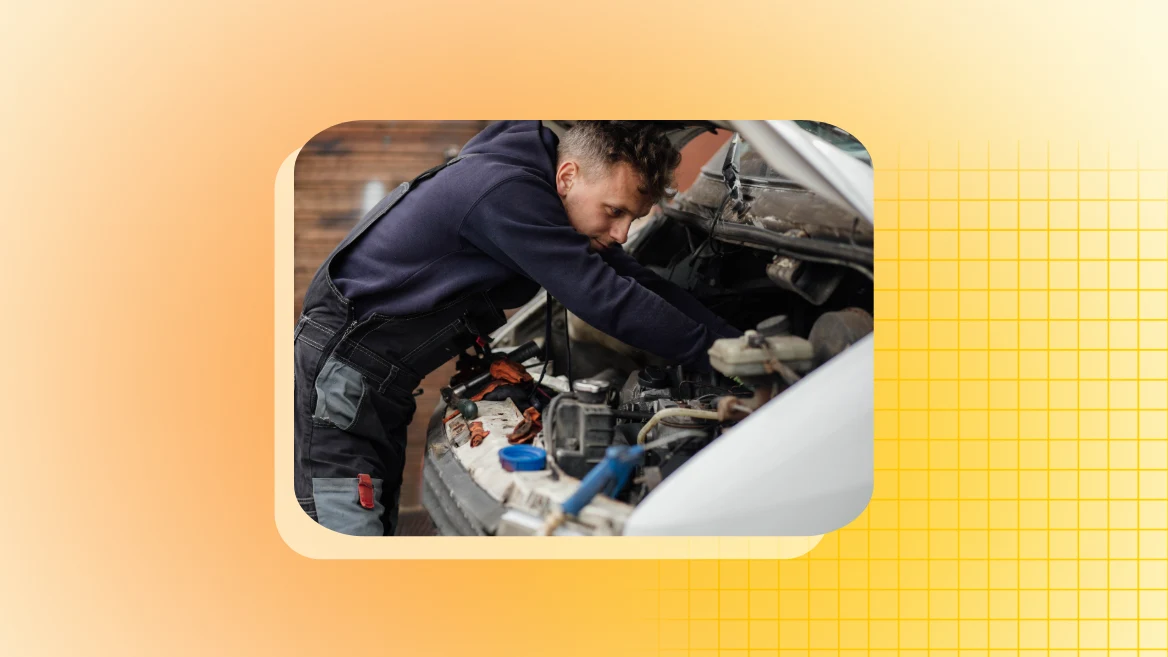A van is more than transport for couriers. It’s your business. When your van is off the road, you lose income and risk letting customers down. That’s why understanding how a van warranty works matters. A warranty can protect you against expensive repair bills, help keep you on the road, and even give you options for extending cover when the original warranty ends.
This guide explains how warranties work, what they cover, whether extending a van warranty makes sense, and what to look out for before you commit.
What we’ll cover
Get access to 15,000+ loads a day on Courier Exchange
Be your own boss. Set your own hours. Make your own money.
What a van warranty is (and how it works)
A van warranty is a written promise that the manufacturer or dealer will cover the cost of fixing certain faults during a set period. It gives you a level of protection against breakdowns caused by defects, not by wear and tear or accidents.
Most new vans come with a manufacturer warranty: in the UK, the standard length is usually three years or 60,000 miles, whichever comes first. That might sound like a long time, but most couriers cover 20,000 to 40,000 miles a year. Many drivers hit the mileage limit long before the warranty runs out.
You should also know the difference between a manufacturer warranty and a dealer warranty.
Manufacturer cover tends to be broader, and repairs must usually be carried out at approved garages. Dealer warranties can be shorter and more limited, but they sometimes include extras to win business.
Warranties aren’t a replacement for your consumer rights. Under UK law, you’re already covered if the van has a fault at the time of sale. But a warranty goes further by protecting you against issues that arise later.
What van warranties cover (and what they don’t)
Not every repair is included in a van warranty.
Warranty cover focuses on faults in manufacturing or parts that fail unexpectedly.
Usually included:
- Engine and gearbox faults
- Electrical system failures
- Suspension issues
- Major component failures
Usually excluded:
- Tyres and brake pads
- Clutches
- Wiper blades and bulbs
- Routine servicing costs
- Damage caused by accidents or neglect
Some areas sit in the middle. Electronics such as sensors, infotainment systems or emissions control equipment might be included, but only on certain warranty levels.
Knowing what’s covered is important because repair bills can run into the thousands. For example, replacing a gearbox can cost £2,000–£3,000. Modern electronics, especially if a van ECU remapping goes wrong, can be just as costly.
Why warranties are especially relevant to couriers
Courier work is tough on vans. You’re on the road every day, covering long distances and putting more stress on parts than the average driver.
High mileage makes you more likely to experience mechanical problems. And when your van breaks down, you’re not just dealing with a repair bill. You’re also losing jobs, income, and possibly contracts if customers see you as unreliable.
Repair costs for newer vans are rising too, especially with Euro 6 diesels and electric courier vans, as well as haulage vehicles if you run them. Complex electronics make repairs more expensive. A van warranty helps absorb those costs and gives you more predictable running expenses.
If you’re working as an owner-driver, your van is often your only source of income. That’s why warranties are an important part of planning how you manage risk alongside things like insurance, breakdown cover, and ongoing courier van maintenance.

Extending a van warranty: options and benefits
Once the standard warranty ends, you can often buy an extended van warranty. This extends cover beyond the original limit and helps protect you against costly failures.
Main options
- Manufacturer extension: keeps you on the same cover, usually with dealer servicing.
- Dealer warranty: offered at the point of sale, sometimes cheaper but with more restrictions.
- Third-party warranty: provided by independent companies, often flexible but with exclusions to check carefully.
Benefits for couriers
- Protection against expensive failures such as engines, gearboxes or complex electrical systems.
- Added cover like roadside assistance, courtesy vans or onward travel, depending on the provider.
- Better cost predictability when running older vans.
Couriers who cover high mileage often get the most benefit. Repairs become more likely as vans age, so extending a van warranty can reduce business risk and help you keep trading without nasty surprises.
What to check before extending a van warranty (and alternatives)
Not all extended warranties are equal. Before you buy, check the small print.
Questions to ask
- Does the warranty include unlimited mileage?
- Is there a cap on how much you can claim in total or per repair?
- Does it limit you to main dealer servicing only?
- Does it provide a replacement van while yours is in the garage?
- Does it cover electrical parts, emissions systems and sensors?
Alternatives to consider
- Breakdown cover from AA, RAC or Green Flag.
- Maintenance packages included in finance or leasing deals.
- Setting aside money each month in a repair fund.
For some drivers, buying or leasing a courier van with an extended warranty built in may be more cost-effective than arranging one later.
It depends how long you plan to keep the van and how heavy your mileage will be.
Tips for couriers on making the most of your van warranty
- Service the van on schedule and keep records. Missed servicing can void your warranty.
- Budget for wear-and-tear repairs like tyres and brakes. These aren’t covered.
- Compare the cost of an extension against your average annual repair bills. If your van is reliable, it may not be worth it.
- If you buy used, check if the warranty is transferable. Some aren’t.
- Factor warranty cover into your total cost of ownership when choosing a courier van.
And remember, warranties are just one part of running a van business. You’ll also need to think about costs like courier van road tax, insurance, and optional van upgrades that affect running costs and reliability.
Conclusion
A van warranty is more than paperwork. For couriers, it’s a way to protect your business against unexpected repair costs and downtime. Standard warranties give you cover for the first few years, but extending a van warranty can be a smart move if you’re racking up high mileage.
It won’t cover everything, and it’s not a replacement for good servicing or cover like courier business insurance. But combined with other protection, a warranty helps you stay on the road and keep taking on courier jobs without worrying about sudden repair bills.
Van warranty FAQs
Do I need an extended van warranty if I have breakdown cover?
Breakdown cover gets you moving again, but it won’t pay for the repair itself. An extended warranty covers the cost of fixing the fault, so the two work well together.
Are extended van warranties worth it for used vans?
They can be, especially if the van has complex electronics or you plan to keep it long term. Always check what’s covered before buying.
Can I transfer my van warranty when I sell my vehicle?
Most manufacturer warranties are transferable, but dealer and third-party warranties may not be. Always check the terms.
What voids a van warranty?
Missing services, using unapproved parts, or failing to follow the servicing schedule can void your warranty. Damage from an accident while driving isn’t covered either.
Is a van warranty the same as van insurance?
No. A warranty covers repair costs for faults. Insurance covers damage from accidents, theft, or other incidents. Both are important for keeping haulage vehicles and vans on the road.




